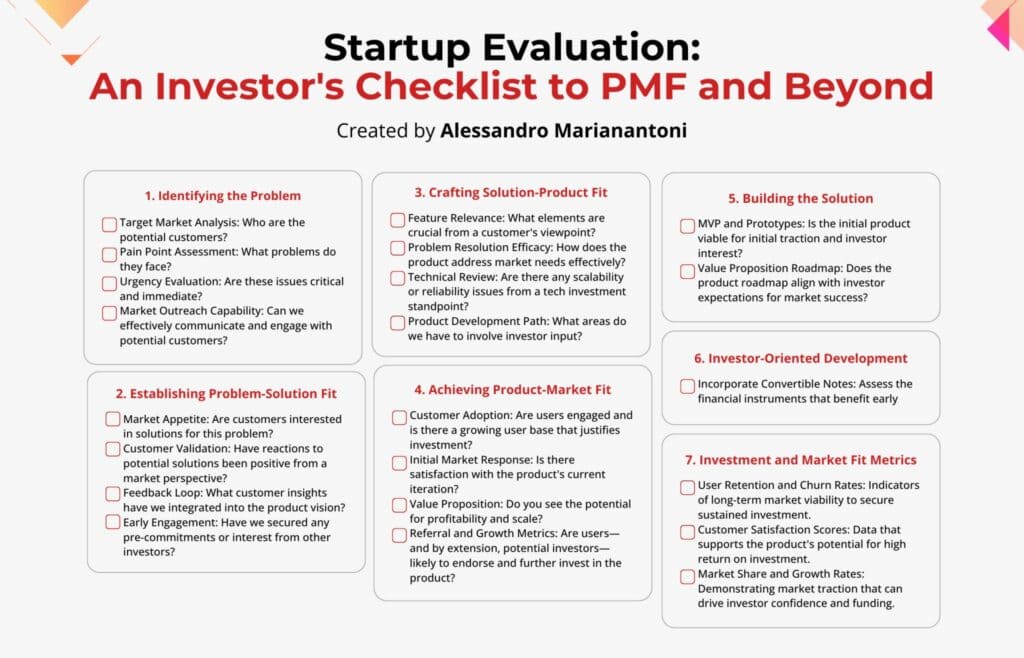
Investing in startups can be a thrilling but risky endeavor. While anyone can come up with a great idea, the key to a successful investment lies in evaluating whether the startup has what it takes to achieve Product-Market Fit (PMF) and sustain growth beyond that point. This article outlines the essential steps for evaluating startups, from identifying a painful problem to providing value beyond funding.
1. Problem Validation
The first step in evaluating a startup is to assess whether its idea solves a genuine and painful problem. While creativity is important, startups that address real-world pain points have a higher chance of success. Investors should ask themselves:
- Does the startup’s solution effectively address a problem?
- Are there potential customers actively seeking a solution to this problem?
- Are these potential customers willing to pay for the solution?
If the answer is a clear “YES” to these questions, the startup has the foundation for success.
2. Market Potential
A great idea and a problem-solving solution are not enough. Investors must also gauge the market potential. This involves understanding the size of the target market, its growth potential, and the competitive landscape. Key questions to consider are:
- Is there a scalable and profitable path for the product?
- What is the addressable market size, and is it growing?
- How does the startup differentiate itself from competitors?
A viable business model and a competitive edge are crucial indicators of a startup’s potential.
3. Team Assessment
Even the most promising ideas can falter without the right team. Investors should evaluate the startup’s team to ensure they have the skills, experience, and dedication necessary to execute the business plan. Key questions include:
- Does the team possess the required expertise in their respective roles?
- Do team members demonstrate a commitment to the project?
- Is the team capable of delivering the product on time and within budget?
A capable and dedicated team can turn a great idea into a thriving business.
4. Ongoing Investment Decision
After considering the problem, market potential, and team, investors must make a crucial decision: Is the startup still investable at this point? This decision should align with the investor’s overall investment thesis and risk tolerance. It’s essential to assess if the startup has the potential to reach PMF and generate returns on investment.
5. Value Beyond Funds
Investors should also ask themselves how they can provide value to the startup beyond monetary investment. While funding is crucial, successful investors often bring more to the table. They can offer strategic guidance, introductions to valuable connections, mentorship, and industry expertise. By actively supporting the startup, investors can significantly increase its chances of success.

Conclusion
Investing in startups requires more than just a good idea; it demands a rigorous evaluation process. Assessing the startup’s ability to solve a painful problem, its market potential, the strength of its team, and alignment with the investor’s thesis are all critical steps. Additionally, providing value beyond funds is essential for nurturing startups to achieve Product-Market Fit and continue thriving. Ultimately, it’s not just the startup’s job to reach PMF; it’s the investor’s responsibility to help them get there and beyond.
Looking fore guidance to achieve PMF? Apply to our Funders Cohorts program.



